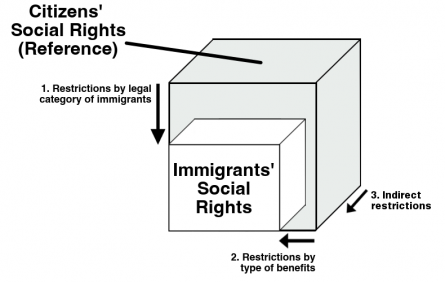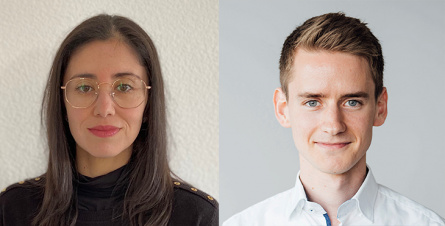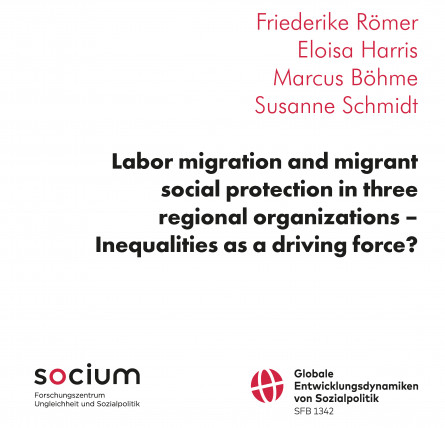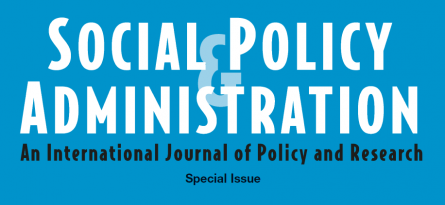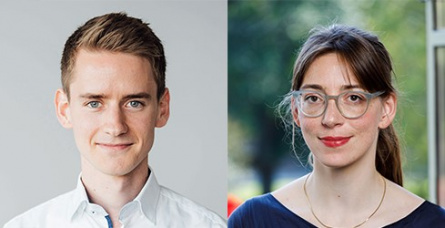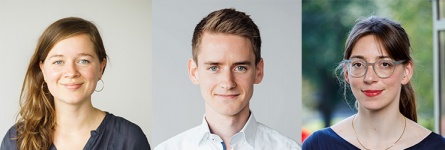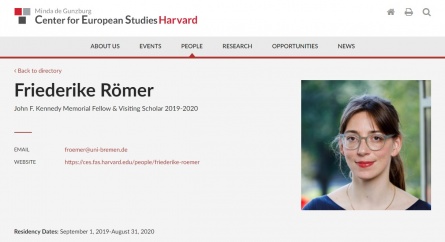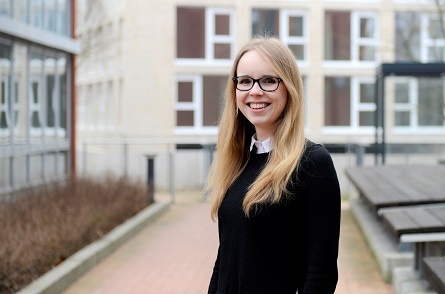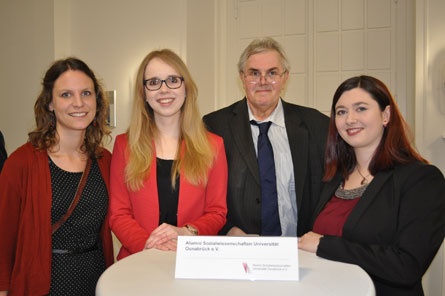Friederike Römer and Jakob Henninger have investigated how the goals of civil society organisations that advocate for migrants' welfare rights differ between autocracies and democracies. They explain their findings in an interview. "Choose your battles. How civil society organisations choose context-specific goals and activities to fight for immigrant welfare rights in Malaysia and Argentina" is the title of a new paper by Jakob Henninger and Friederike Römer, published in Social Policy & Administration. In this interview, they explain their research design and results.
---
For all those who have not yet read the paper: Can you briefly summarise your most important findings?
Friederike Römer: In our paper, we examine how civil society organisations - for example, non-governmental organisations, but also trade unions - campaign for migrants' access to welfare benefits. We compare Argentina with Malaysia, and thus a democracy with a country that, at least until recently, was classified as an electoral autocracy. We asked ourselves: What strategies do these organisations pursue? More precisely, what goals do they set for themselves? And what actions do they take? We found that there are major differences between the two cases: In Argentina, the organisations pursued more ambitious goals, namely the inclusion of immigrants in the whole range of welfare benefits - including benefits that do not require prior contributions. In Malaysia, on the other hand, the commitment was rather limited to certain contribution-based benefits. Inclusion in the tax-financed poverty reduction programme, for example, was never part of the strategy.
Jakob Henninger: We were able to show that the contextual factor "political system" can explain at least part of these differences. In both countries there are activists who work for the inclusion of migrants. However, civil society organisations in Argentina are better integrated into political processes. They had different resources and opportunities to influence political decisions. But the type of arguments put forward by the organisations also differed: In Argentina, human rights are often referred to and interpreted in terms of equality between migrants and the domestic population. References to human rights can also be found in Malaysia - but rather as a demand to comply with minimum standards.
You argue that CSOs choose their goals and activities depending on the type of regime. Could it not be that they also align their goals and activities with the values and general sentiment towards migrants among the majority population? The point I want to make is: How do you make sure that the respective regime type is the cause of the differences in CSOs and not other factors that you have not investigated?
Jakob Henninger: Of course, these two cases are different. But what is important is that they are also similar in many crucial aspects. Both countries have a long history of migration that goes back to the 19th century and continues to shape societies today. Today, they are among the main recipient countries of migration in their respective regions and some sectors of the economy are heavily dependent on migrant labour. Similarly, the welfare states of the two countries have similarities, even if they are not the same: Both have long been focused on contribution-based benefits, but have recently introduced more benefits that do not depend on contributions. Thus, we can rule out at least some factors as explanations for the differences.
Based on preliminary theoretical considerations, you outline some expectations in the introduction of the paper, which are then confirmed by empirical evidence (e.g. that CSOs in democracies tend to pursue the goal of equality for migrants, while CSOs in autocracies tend to pursue the goal of meeting the basic needs of migrants). Were there also things that have surprised you?
Friederike Römer: We had expected that the activities of the organisations would differ significantly. We would have thought that the Malaysian organisations would concentrate more on providing concrete help in emergency situations, while the Argentinian organisations would focus more on political advocacy. However, when we analysed the organisations' self-descriptions, we realised that the differences were not very big at first glance. That surprised us. For example, in both countries, a similar number of organisations stated that they were active in political advocacy or in legal aid for migrants. However, a closer look revealed differences: In Malaysia, activists told us how difficult it is to arrange meetings with representatives of ministries. In Argentina, working groups on migrants' rights are sometimes organised directly by the ministries and civil society representatives are officially invited. Similarly, it is interesting to note what is meant by legal aid in the two contexts. While organisations in Malaysia are trying to work towards the enforcement of existing law and, for example, to make claims for compensation payments to employers, Argentinian organisations have partly tried to mark existing law as unconstitutional and, ultimately, to change the legal basis, for example, when it comes to the right to reduced working capacity benefits.
Your paper is titled "Choose your battles" and hints at the interpretation of your results. Can you elaborate on this? For example, what role do the elements of efficiency (i.e. that CSOs only strive for realistically achievable goals) and positioning vis-à-vis entities of state power (including the threat of repression/impact on funding sources) play in the choice of goals and activities of CSOs?
Jakob Henninger: Both considerations of efficiency and strategic positioning vis-à-vis state power are major factors influencing organisations in their choice of strategy. For one thing, organisations have limited resources at their disposal, so they have to prioritise their goals. Therefore, they think carefully about which problems to address and which not. On the other hand, they have to make sure that their proposals resonate with policy makers and the wider public - both of these considerations apply to both contexts.
Friederike Römer: In an autocratic context like Malaysia, however, the concern about repressive state power has a very different relevance than in Argentina. Our Malaysian interviewees report that they take precautionary measures to protect themselves and the migrants they work with. In Argentina, on the other hand, confrontational strategies are quite common. Here we would again emphasise that the cause of these differences is to be found in the political regime.
---
Read the full paper (open access):
Jakob Henninger, Friederike Römer: Choose your battles. How civil society organisations choose context‐specific goals and activities to fight for immigrant welfare rights in Malaysia and Argentina. Social Policy & Administration, 2021, online first: https://doi.org/10.1111/spol.12721
Contact:Dr. Jakob HenningerDeZIM e.V.
Mauerstraße 76
10117 Berlin
E-Mail:
jakob.henninger@uni-bremen.deDr. Friederike RömerDeZIM e.V.
Mauerstraße 76
10117 Berlin
E-Mail:
roemer@dezim-institut.de
